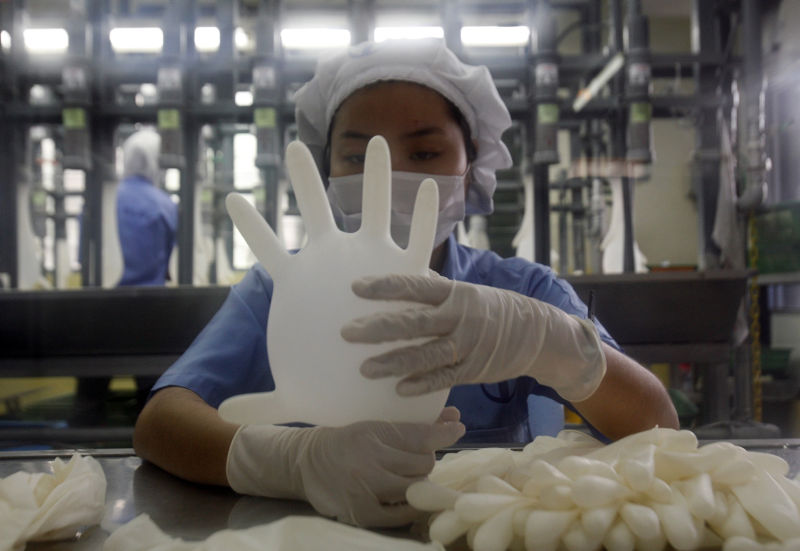Workers at Malaysian glove maker Supermax Corporation will seek a judicial review of the British government’s decision to approve the company – which is accused of using forced labour – as a supplier to its National Health Service (NHS), lawyers said.
The move comes after US Customs and Border Protection banned imports from Supermax in October over alleged labour abuses. Canada has also put on hold its contract with the company due to similar concerns.
London-based Wilson Solicitors said it had asked Britain’s NHS supply chain to reconsider a December decision to award Supermax with a framework agreement to supply personal protective equipment.
The filing cites concerns over the government’s due diligence in light of the forced labour allegations.
“The legal requirements are clear that there should be real verification of suppliers before the award stage, but it is not clear that these necessities have been met,” Nusrat Uddin, the law firm’s lead lawyer on the case, said in a statement.
Judicial Review
The request for a judicial review is expected to be filed at London’s High Court on Friday. Supermax and Britain’s Department of Health and Social Care did not immediately respond to requests for comment.
Supermax said this week it will introduce a new foreign worker management policy and enhance its current human resources policies in response to the allegations.
The company, which has supplied millions of rubber gloves to the NHS under an earlier agreement, is among five Malaysian glove makers to have faced a US ban on their products in the last two years due to suspected forced labour practices.
The British government in November said it had placed an order in July for 135 million gloves at a cost of 7.9 million pounds ($10.70 million).
“The UK government (and the NHS) are laggards in the global fight against modern slavery,” said Andy Hall, a migrant worker specialist monitoring labour issues in Malaysia.
“Victims of forced labour, and activists seeking to protect and remediate them, cannot rely on the (UK) government for support. There are no effective systems in place to ensure goods the UK government procure are not produced in situations of modern slavery.
“Furthermore, the NHS’s buying practices are actually more likely to contribute and encourage modern slavery than they are to prevent and remediate them,” he said.
- Reuters with additional reporting by Jim Pollard
ALSO READ:
Malaysia Glovemaker Stock Tumbles After US Ban
Canada Bans Malaysian PPE over Forced Labour Claim
Top Glove Shareholders Approve Hong Kong Listing Plan
























